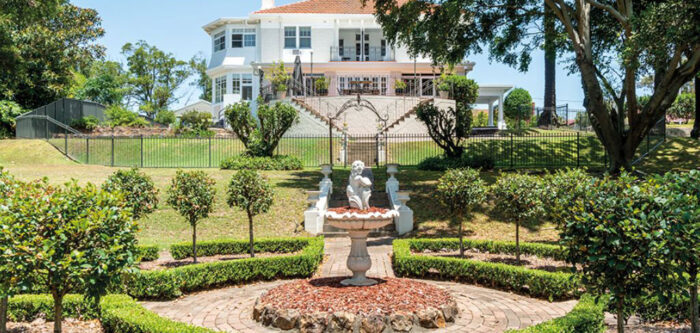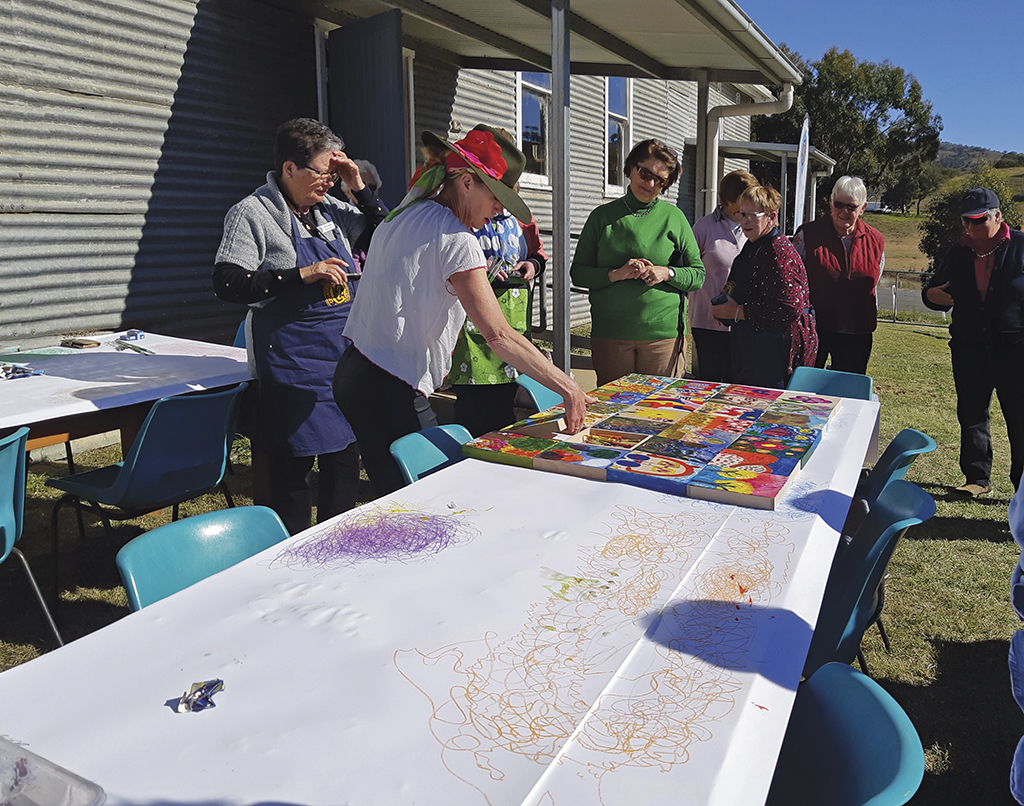
Women with a vision
This year, the Country Women’s Association of NSW is celebrating its centenary milestone, and the Scone branch was amongst the first to join the movement.
Founded in 1925, the Scone & District Branch is one of the oldest, continuously active branches of the Country Women’s Association (CWA) of NSW, which in turn was founded in April 1922. How fitting then that the centenary celebrations were recently held at Scone Racecourse. It speaks to the organisation’s sustained influence that representatives from three different levels of government were in attendance: Deputy Prime Minister Barnaby Joyce, State Member for the Upper Hunter, Dave Layzell, and Cr. Morris Collison, Mayor of the Upper Hunter Shire.
The acronym CWA may evoke connotations of thrifty home cooks, the rhythmic clatter of knitting needles or genteel fund raisers over Earl Grey tea and freshly baked scones, but there’s a lot more to the CWA and its members than a fine crochet and juicy fruit cake.
The organisation’s founding mothers were an impressive group of women, deeply passionate about improving conditions for country women and children. Practical and hands-on, they were ready to tackle controversial subjects and to argue with the (usually) men in power.
The association’s inaugural president, Grace Munro, wrote the CWA’s list of aims and objectives late at night, propped up in bed, literally burning the midnight oil. It is a list that is as relevant today as it was 100 years ago.
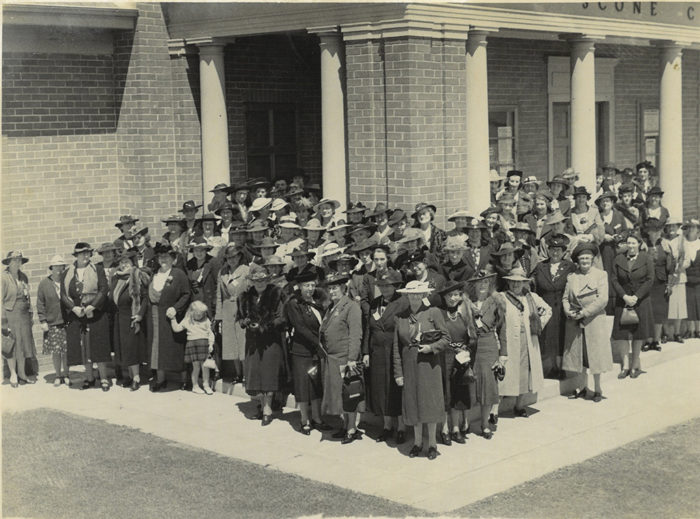
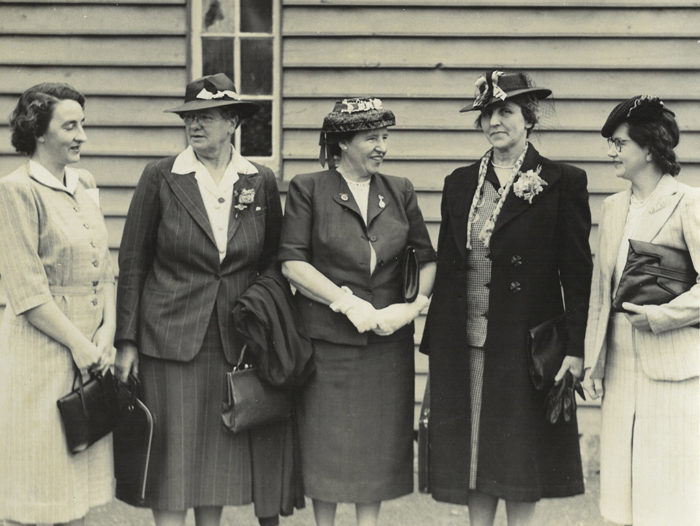
President Mrs J. Davies (second from left).
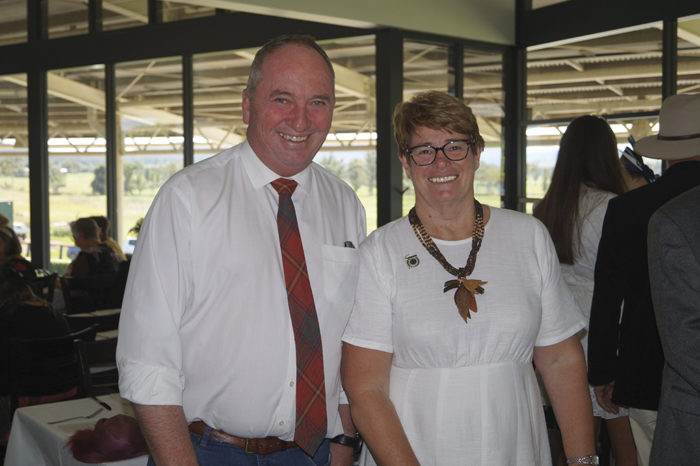
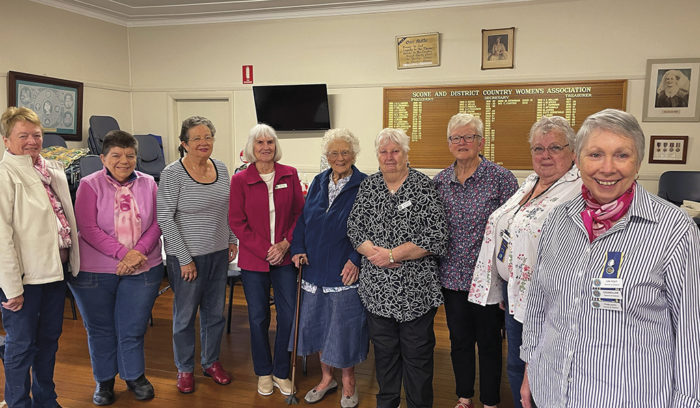
The Scone branch was founded in September 1925 after a passionate speech by Organising Secretary Marie Irvine who spoke of the isolation of country women, and the lack of support for women during childbirth. She even compared the resulting loss of life to the slaughter in the trenches of the first World War. She must have been a rousing speaker as the branch was formed less than a month later with Mrs J Davies its inaugural president. By August 1926, the new branch had raised enough money to open rest rooms as a place for country women to find shelter, have lunch or a cup of tea. At a time when women weren’t allowed in pubs or hotels, they provided much needed comfort. In February 1931, a holiday home in Newcastle’s beachside suburb of Merewether was opened. The Maitland Daily Mercury stated, “Not only is the home opened free of debt, but money is in hand to carry on, which is due to the organising ability and determination of character of (inaugural Vice President of the Scone Branch) Mrs W.J. MacKay and her love for humanity generally.”
It was Mrs MacKay’s pet project and she had single-handedly raised more than half of the required funds, selling jams, preserves and flowers from her garden. She had even invented, patented and sold the ‘Betta-Lite’, a portable lamp to be used when travelling the primitive gravel and dirt roads so common at the time. Sales of the lamp contributed another 200 pounds to the funding of the Merewether home.
Opening a baby health centre turned into a decade-long struggle with the government. While everyone agreed that the situation was appalling and an official from the Agricultural Bureau commented at a CWA General Meeting in Moree that if “pigs and cattle and horses were dying at the same rate as women, the subject would be a matter of immediate inquiry,” the government declared itself unable to provide a nurse to staff the premises the Scone Branch had already secured. It was again Mrs MacKay who kept up the fight and the Baby Health Clinic was finally opened in 1938. It operated for 48 years until its closure in 1985, with more than 40,000 babies and their mothers receiving much needed care.
“The founding members were generally well-heeled women, married to influential husbands and they used that to further the cause,” explains Carolyn Carter who joined the Scone Branch in 2012 after moving to the Upper Hunter to be closer to her family.
“My mother and my grandmother were CWA members. I am a teacher and started to do research on the CWA as part of my work on the modern history syllabus committee in the 1980s. I was so impressed that I decided to join.”
Read more about the CMA in our Winter issue of Hunter & Coastal Lifestyle Magazine or subscribe here.
Story by Cornelia Schulze, photography courtesy of Scone & District Branch

